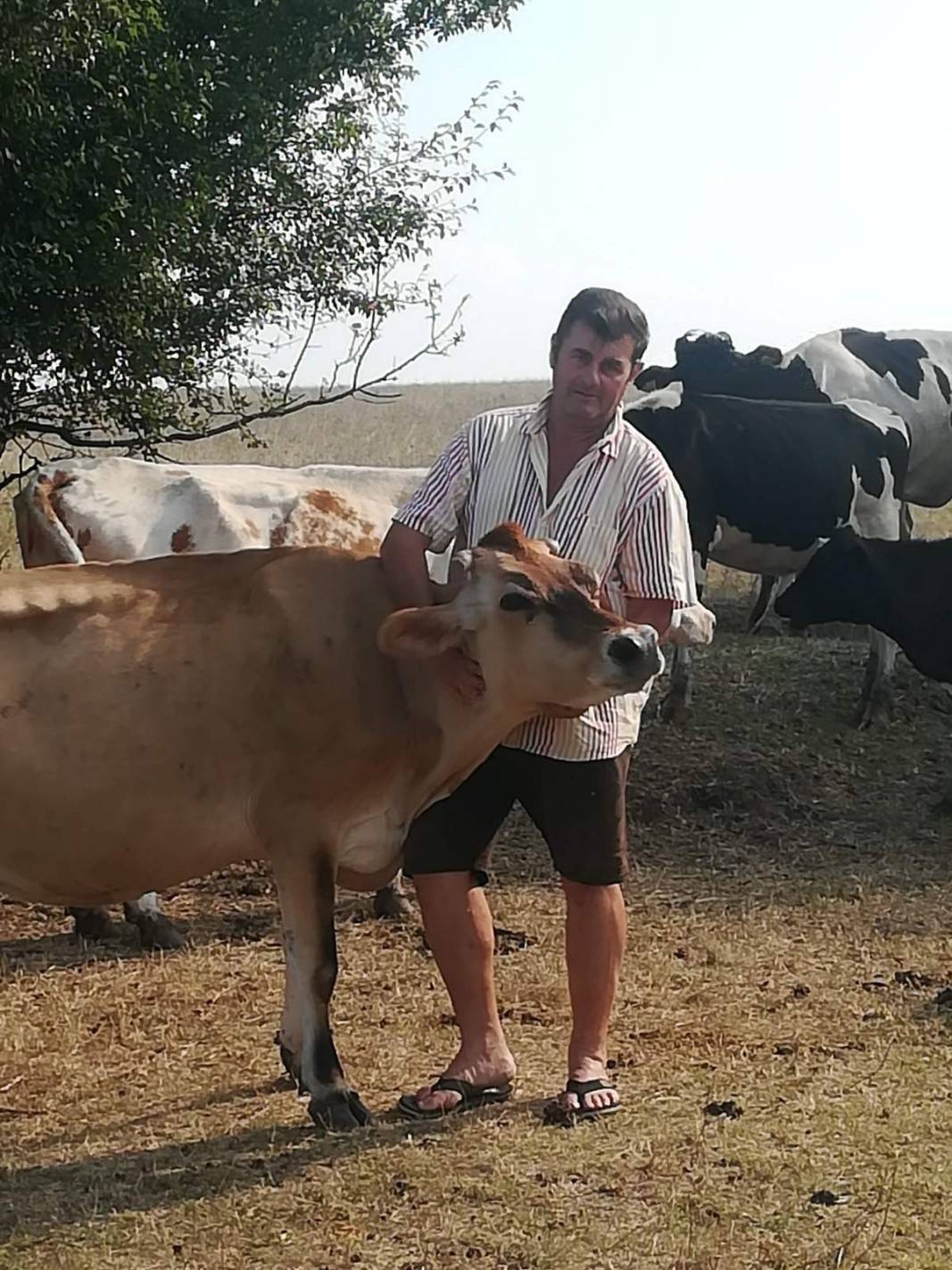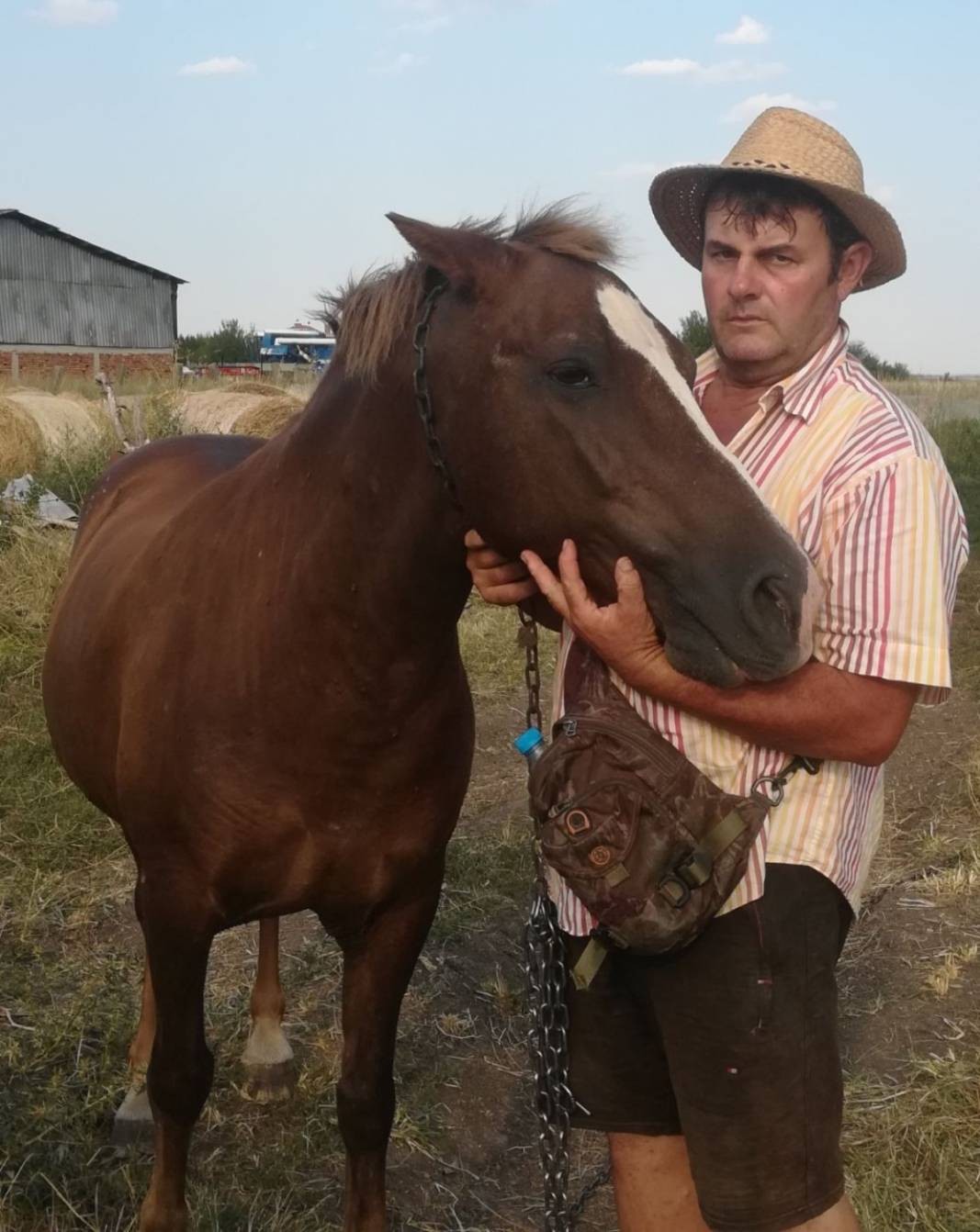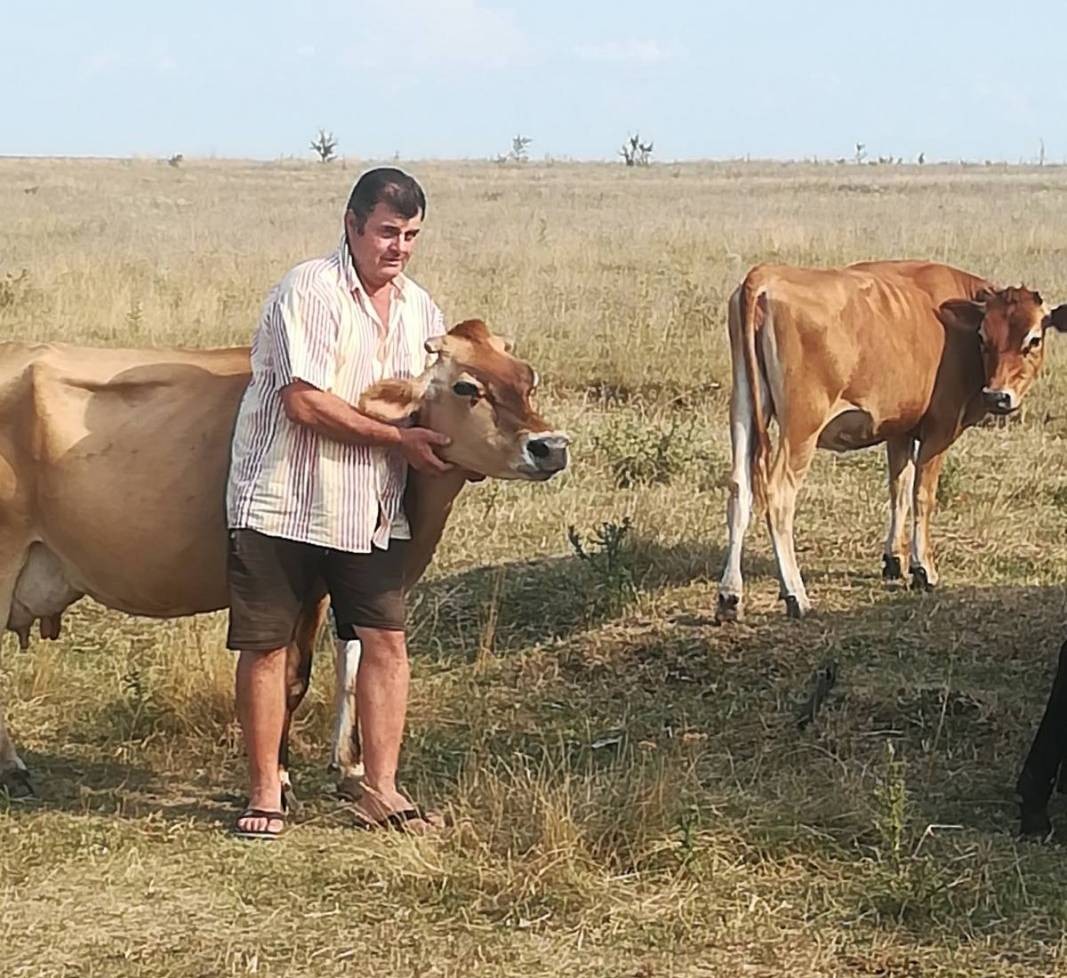Krum Mladenov lives in the village of Slivovik (Northwestern Bulgaria), where he divides his time between his animals and the brass band "Medenyatsite". He has more than 400 cows, sheep and goats. On weekdays, he is engaged in farming, but when a holiday comes around, he leads the brass band, which has deep roots in his home region.
"To make music, you need to be rested and be able to let your soul relax- – says Krum. – In agriculture, however, there's constant pressure and stress which is due to the staff shortage. For example, if you commit to playing at a wedding, you can't say at the last moment, ''Hey, the cowherds have not shown up today''. You have to find the strength to cope on both fronts at any cost. Sometimes I have too much work, but I can't give up either one."

Krum began farming in 1992, after being discharged from the army. This coincided with the dissolution of the agricultural cooperative, from which he received a few animals. Initially, he started a herd of cattle. Then, he raised nearly 300 goats under the "Young Farmer" programme and eventually shifted to sheep farming. Currently, like all farmers, he is finishing up mowing and is baling hay to make sure he has enough feed for the winter season.
''We have our own land – says Krum Mladenov. – Part of the arable land is leased out, because if you do everything, you end up doing nothing - you can't do arable and livestock farming at the same time. Some of the feed is produced in our farm, but we take most of it as rent."
The livestock farmer says that those working in the industry face a number of problems, including a lack of workforce and insufficient municipal pastures and meadows. They are forced to close the production cycle to survive.
"We are trying to process part of our production –Krum Mladenov says in an interview with BNR-Vidin. – We have recently registered for direct sales of fresh milk and will also apply under a regulation allowing us to carry out primary processing of cheese and milk. The problem is the low price - it feels like giving the produce away. The prices are abnormal and I don't see how one can survive over the years."

During the current season, no company in the area is buying sheep milk, adds Krum Mladenov. However, livestock farmers need to prove that they have produced and sold products in order to receive their subsidies at the end of the year. That is why, several herds have already been put up for sale.
''This is not a state policy" – the farmer continues. – We call and they tell us: ''We are waiting for instructions from Sofia''. That doesn’t sound normal, does it? On the one hand, the state claims to have a proper agricultural policy and to care about small producers. On the other hand, however, it pushes us into the gray sector. We are fighting against windmills, but I don’t know how long we can survive’’.
Could EU subsidies be the way out of the difficult situation? Although it sounds tempting, the aid under EU programs is proving to be a thorny road for those involved in livestock farming, says Krum Mladenov.

Compiled by Diana Tsankova (Interview by Yordanka Gerasimova- BNR Vidin)
Published and translated by Kostadin Atanasov
Photos: Private archiveThe tallest Ferris wheel in Bulgaria will rise above Pleven , announced regional governor Nikolay Abrashev. It will be built in a multifunctional complex near the Kaylaka Park. "The project envisages the construction of a Ferris wheel with a..
The town of Elena, Veliko Tarnovo region, will welcome thousands of guests for the Feast of the Elena pork leg meat delicacy . Balkan masters will demonstrate their culinary art on Saturday and Sunday, BNR correspondent Zdravka Maslyankova reported...
The international wine festival "Bolgrad Wine Fest" is opening today in the unofficial capital of ethnic Bulgarians in Ukraine - Bolgrad. The two-day event will be held at the Center for Culture and Recreation. For the first time, within the..
Over 3.5 million Ukrainians have arrived in or passed through Bulgaria since the beginning of the war. Nearly 200,000 people have found temporary..
At the Bulgarian Embassy in London, Prof. Bettany Hughes presented excerpts from the new BBC series - Wonders of Bulgaria. Prof. Bettany..
An innovation for the treatment of diabetic foot ulcer using the patient's own tissue and artificial intelligence has been implemented at the University..

+359 2 9336 661
